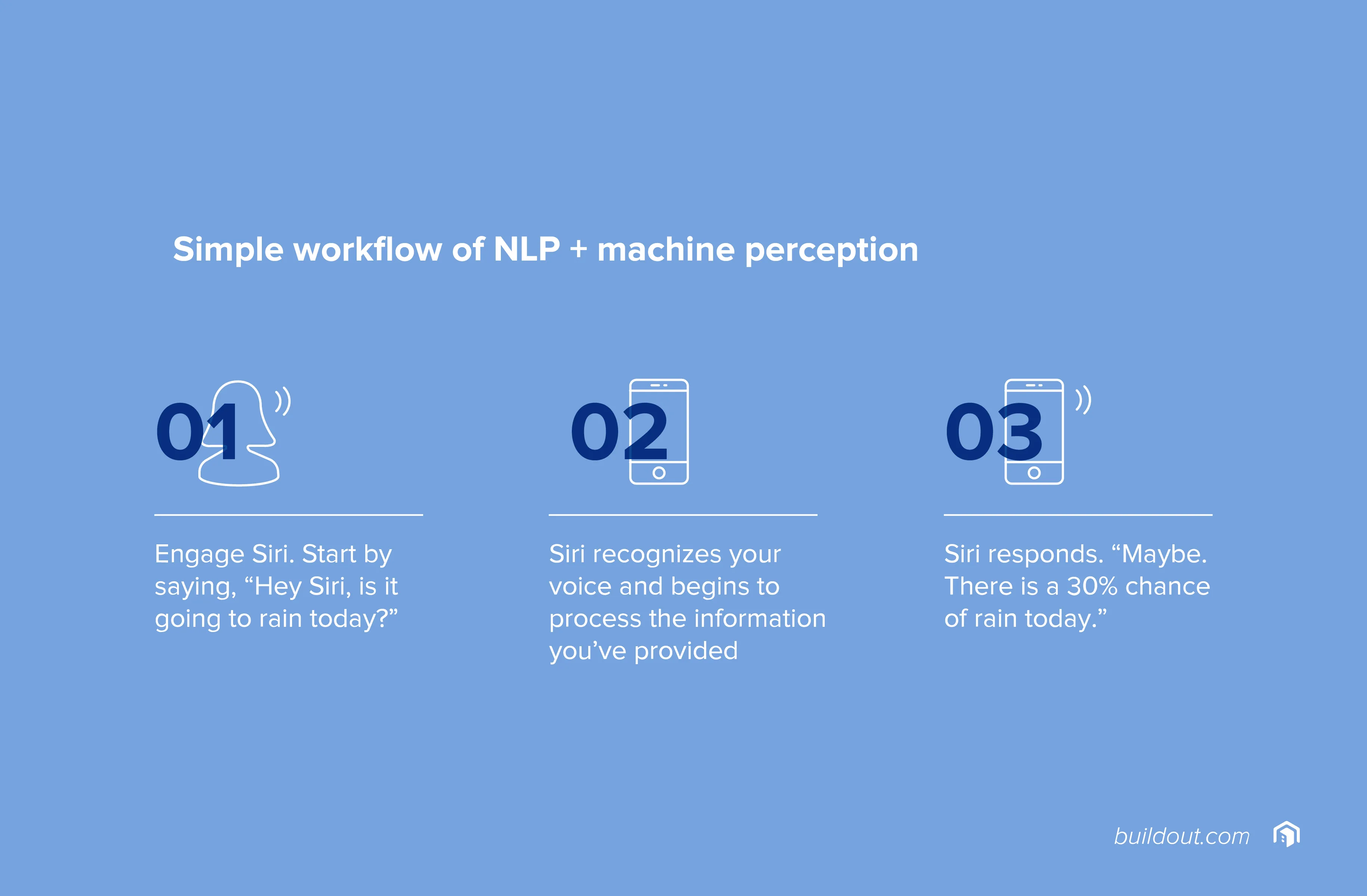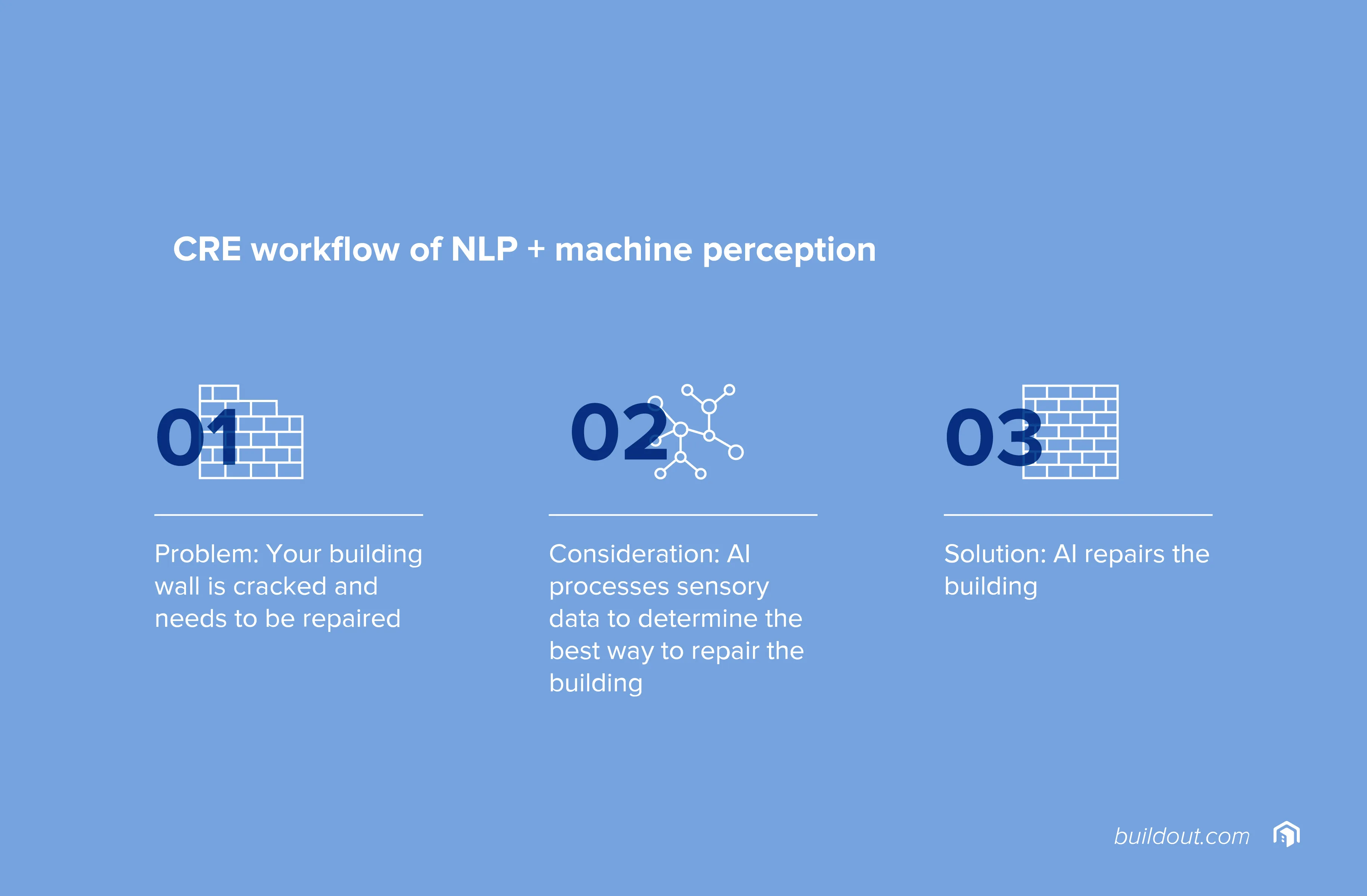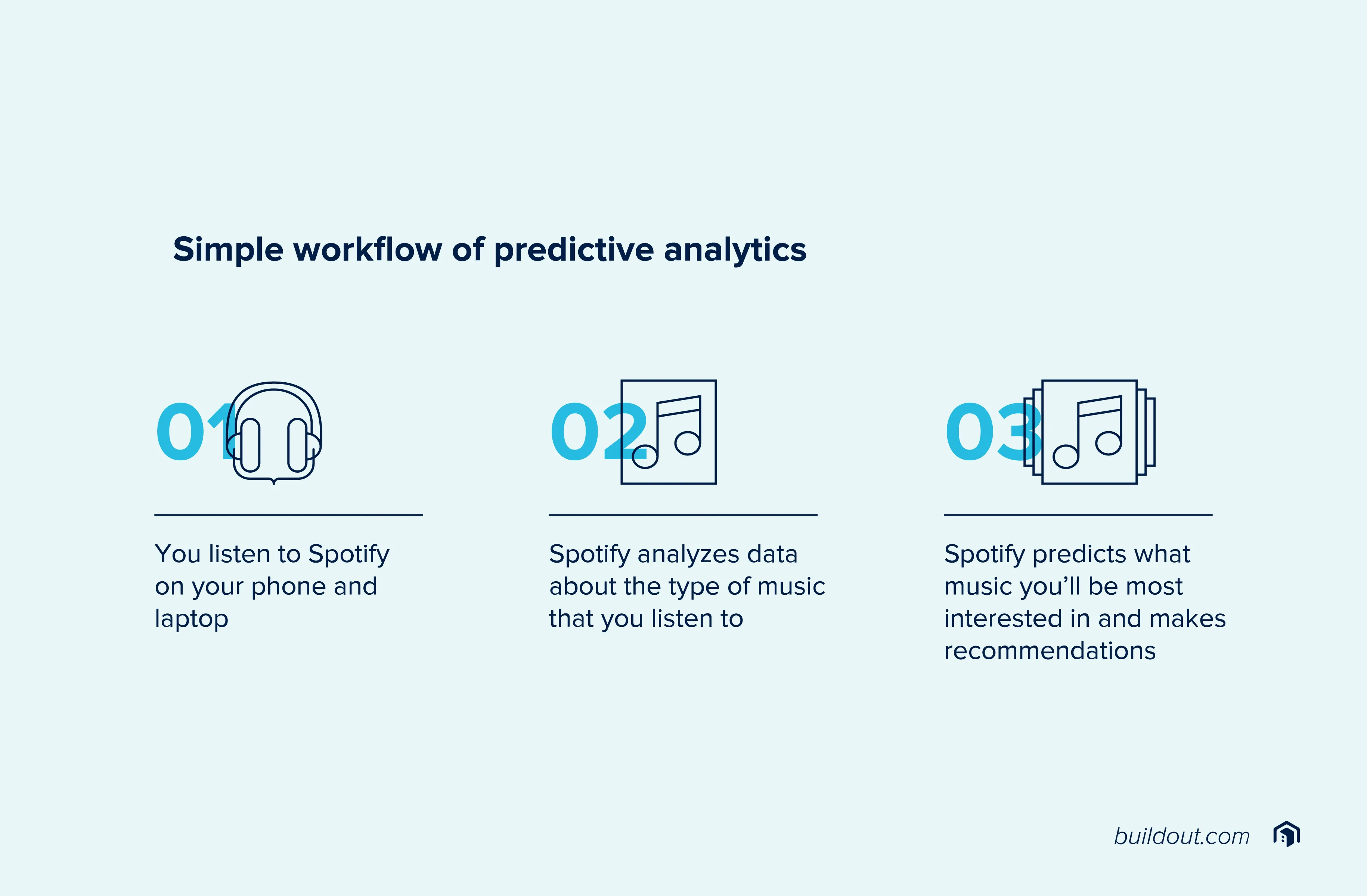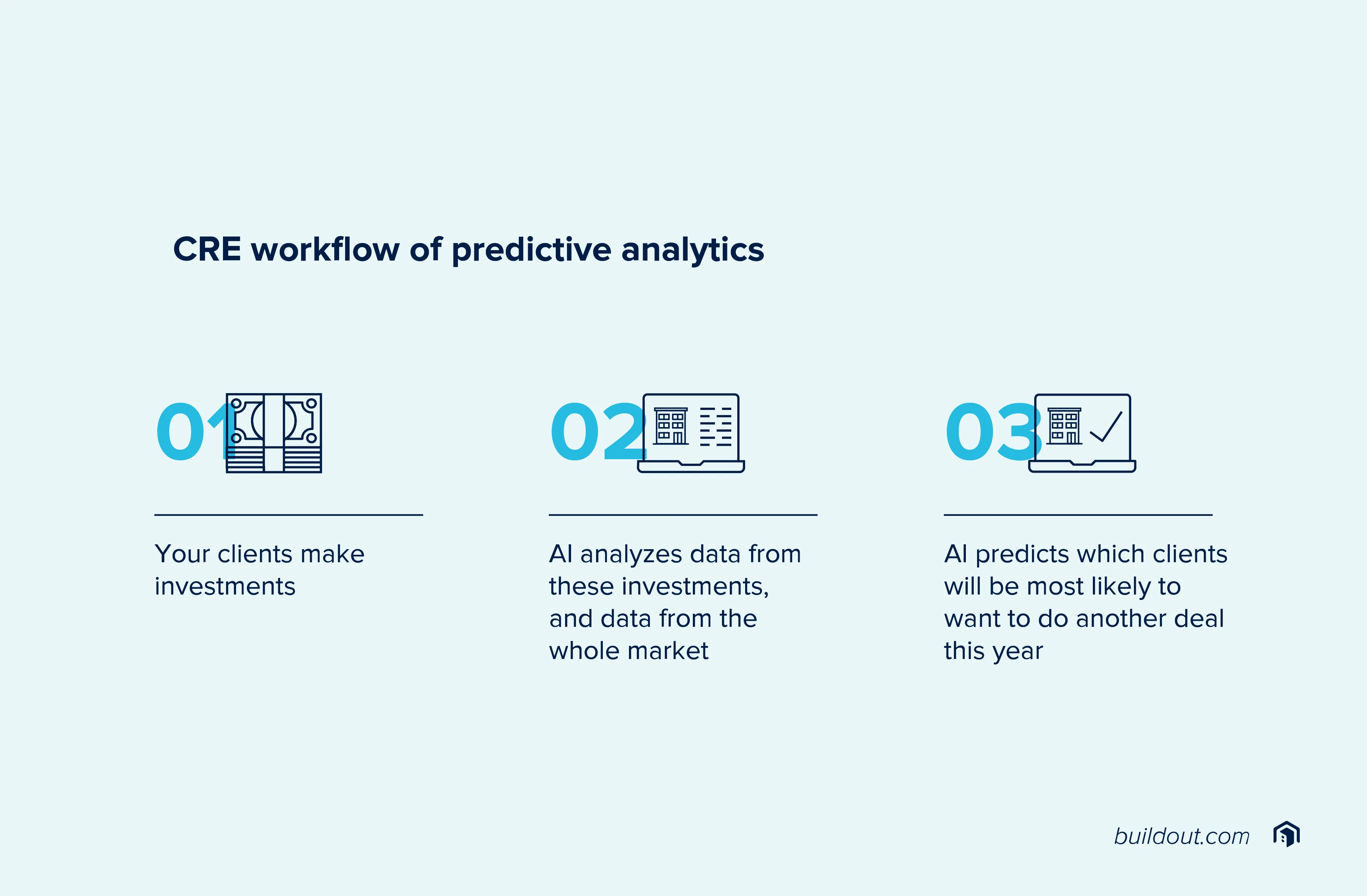In the commercial real estate industry, professionals embrace new technology in a particular pattern: Adoption → Integration → Transformation
- Adoption: a technology is introduced and accepted by the first wave of consumers and professionals
- Integration: the technology becomes a fully integrated part of the ecosystem for which it was designed and interfaces with other tools and applications
- Transformation: as users get comfortable with the technology, they begin utilizing it in more innovative ways and building upon it to make it more useful. When transformation takes hold, tasks, processes, and entire industries are disrupted.
CRE has long been called out as tech-averse and slow to adopt new tools, but times are changing. The industry has finally embraced technology, and integration improves every day. Now, CRE is on the cusp of transformation.
What will drive that transformation? The answer is artificial intelligence (AI). But don’t worry––the future of artificial intelligence is not as intimidating or threatening as you may think. Here’s what you need to know about how it’s going to change CRE forever.
Artificial intelligence has arrived
There are two different types of AI: narrow AI and artificial general intelligence.
Artificial general intelligence (AGI), also sometimes referred to as full AI or strong AI, is a combination of human intelligence characteristics that allow machines and technology to successfully perform any intellectual task a human could. Fully-formed AGI would be able to achieve all of the following:
- Knowing
- Understanding
- Planning
- Learning
- Seeing and hearing
- Creating
- Moving
While AGI seems like the stuff of science fiction, it may not be as far off as you think.
Companies like Google, Facebook and IBM are making major investments in AGI exploration. Some, like Portland-based Kimera Systems, have even released technology that gets close to AGI status. Last year, they introduced Nigel, a technology that is able to “observe user behavior, comprehend context and derive a commonsense set of actions to apply under specific circumstances.”
Computer scientist Richard Sutton, a highly regarded expert on the future of artificial intelligence, has stated that there’s a 25 percent chance we’ll see true AGI before the year 2030. Until then, we’ll have to settle for applied AI, which most of us already use every day.
Applied, weak or narrow AI doesn’t form a full range of cognitive abilities. Instead it focuses on just one or two intelligent operations that it’s been programmed to complete. This is the type of AI we’ll be focusing on in this piece.
Many of today’s technologies use applied AI to study or complete specific problem-solving or reasoning tasks. Amazon’s Alexa, Microsoft’s Cortana and Apple’s Siri are well-known examples.
And consumers and professionals in industries like marketing, publishing, manufacturing, healthcare and finance all use applied AI technologies every day. Security, customer service, voice recognition and personal assistants are all powered by AI tech.
It’s time to stop living with the misguided belief that AI won’t truly impact us in our lifetimes and recognize that it has already arrived.
Why AI matters for CRE
As a commercial real estate professional, what does the future of artificial intelligence mean for you?
AI won’t push you out of your job as a CRE professional. Even as applied AI takes hold in CRE and more advanced, general AI eventually becomes a reality, investors and buyers will always need trusted advisors to help them make important decisions. “Hand holding,” or providing guidance, reassurance and assistance for those completing difficult tasks and making difficult choices will be the last thing to be automated in all industries, from healthcare to real estate. As one of these trusted advisors, you can rest assured that your career is a long way from becoming obsolete.
AI technology will only help you. As applied AI takes off and true transformation begins to take place, you’ll be able to do things like identify better prospects and utilize more efficient site selection. And the tech-forward features of your properties (which you should highlight in your marketing materials and promotional efforts) will evolve right along with the tools you use.
It will be crucial for you to show your clients that you’re ahead of the curve and know how new technology could change investor, buyer and tenant experiences across different property types.
To help bring you up to speed on AI, here’s more information about the types of AI most likely to impact CRE and how they could affect your clients.
Applied AI tech that will affect CRE
Most of the AI technology in existence today falls into the category of machine learning, and this is also the type of AI that will most impact CRE. Machine learning refers to a computer’s ability to learn through experience without being explicitly programmed.
AI tools equipped with machine learning use algorithms to process information, discover trends in data, learn, and make choices and recommendations without being given specific instructions.
Examples of AI made possible through machine learning include:
Natural language processing
When we type or speak a question or statement as we would to another person and a computer understands and responds in an appropriate way, that’s the work of natural language processing (NLP).
Today, we use NLP and machine perception through chatbots, translators, handwriting analysis, security systems using facial recognition and more. Apple’s Siri, Amazon’s Alexa, speech-to-text tools and language translators are all common examples of NLP technology.
Machine perception
Machine perception is the computer processing of sight, sound and touch. AI tools with machine perception capabilities like security systems that use facial recognition can take in sensory data from the world around them and respond accordingly.


How NLP and machine perception will affect your CRE clients
- Retail: Mobile apps featuring chatbots will streamline the retail shopping process and take the place of many sales and customer service people. In fact, McDonald’s is already in the process of optimizing their customer experience through self-service touch screen kiosks for orders. The spaces used for retail will have to evolve to operate effectively with more apps and machines and fewer employees.
- Industrial: As is already happening at Amazon’s automated warehouses (and elsewhere), most inventory management will soon be automated and perfected thanks to machine perception. Warehouse spaces will need to be further optimized for machine use, and designing them for human use will become less important. For example, today’s early fully-automated industrial spaces operate as “dark warehouses,” or “lights-out-facilities,” because robots do not need to see to perform their tasks and can rely on their other machine perception “senses”. Demand for these types of spaces is poised to grow significantly in the years ahead.
- Office: Virtual reality technology, which relies on machine perception, makes it possible for people to work from anywhere. But that doesn’t mean offices are going away. Instead, tenants will seek office spaces optimized for integrated technology, improved individual work experiences and collaboration. We may also see a rise in small single occupant offices that people who work from home some of the time use on an as-needed basis to get away from the distraction of kids and pets.
And for every property type, building inspections and minor building repairs will soon be automated via machine perception and robotics.
AI and virtual reality will also make it easier to suggest options for tenant improvements. With a specific tenant’s preferences and needs in mind, a broker will be able to walk into a space and present the client with customized virtual layouts of what the listing could look like once adapted to their needs. Most brokers have experienced the frustration of watching an important deal die because the prospect lacked imagination. New tools eliminate that problem.
Predictive analytics
Fraud detection, purchase recommendation apps and self-driving cars all use predictive analytics to help us make decisions and perform what were once manual tasks. In CRE, this type of technology will soon be able to predict what properties your clients will be most interested in based on specific data about past investments and interests.


How predictive analytics will affect your CRE clients
- Retail: Sensors will detect and track consumer behaviors, allowing retail tenants to optimize the shopping experience based on real data. Thanks to predictive analytics, shopping in a store will feel more like shopping online, and will include personal recommendations based on data about your past purchases and information on how you’re behaving in a store. And when paired with 3D printing technology and other AI, predictive analytics will even make it possible to create completely personalized products (like a tennis shoe fit to your exact measurements and the way you walk) on-demand for shoppers. Retail spaces will need to adapt their setup and design to the highly personalized shopping experience customers will come to expect.
- Multifamily: Based on living habit history, smart home technology will be able to predict resident preferences and adjust an apartment or home’s lighting, temperature, smells and more based on who is using the space and how they’re using it. Multifamily properties will need to ready themselves for the integration of this technology and brokers will need to emphasize it in their marketing.
- Industrial: As predictive analytics make it easier to accurately predict inventory needs, self-driving semis will begin to act as mobile warehouses. They’ll keep a great deal of inventory constantly on the move, and industrial space needs may decrease. We should also get ready for a major increase in the need for small manufacturing facilities. As manufacturing and vehicles are automated and predictive data improves, the benefits of reduced inventory, human, and transportation costs will greatly outweigh any savings that could be had from overseas production.
- Office: With a fleet of self-driving cars, which will rely on predictive analytics to figure out where to be to pick riders up, commutes will be shorter and employees will be able to produce more in an average work day. Office spaces will become spaces for collaboration, not a place to sit at a desk and work in isolation.
And for all property types, the process of creating and reviewing standard legal documents like leases will also be almost entirely automated, likely within the next decade, thanks to predictive analytics. As a result, transactions will be faster and cheaper.
What CRE professionals can do now to brace for the future of artificial intelligence
The future of artificial intelligence isn’t as intimidating as it may seem. It will continue to evolve and advance, which will impact people in all industries and walks of life. But as a CRE professional, you can prepare now to ensure your success in the future.
Don’t swear off AI. Instead, use today’s technologies and those that emerge in the future to your advantage. They can streamline your job and make it easier for you to focus on the parts of your work that matter most. And showing your clients that you’re informed about how AI is likely to impact their future and the future of different property types they’re interested in will set you far apart from your competition.
CRE professionals like you won’t be disintermediated by AI. Instead, those who choose to learn about and leverage AI technology will become even more successful.
We’re committed to educating you on what you need to know to remain a trusted advisor to your clients, and we’re with you in staying ahead of technology trends. Contact us to get your customized demo and learn how Buildout’s clients are using our automation technology to take their brokerages into the future.

